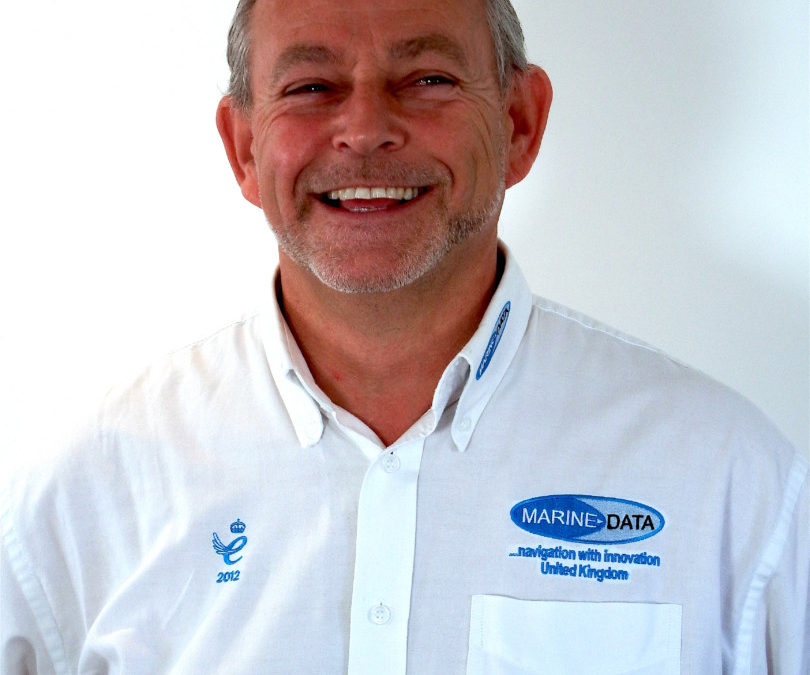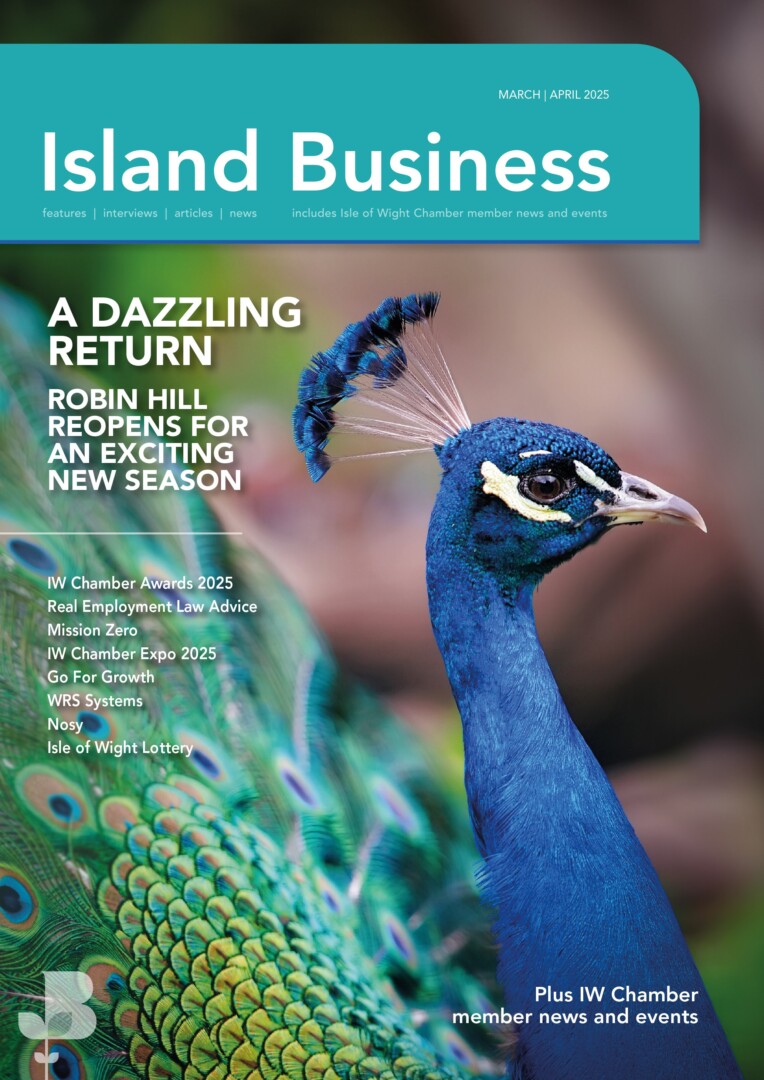Marine Data Systems is an industry leading navigation manufacturer supplying clients across the globe from their base in Newport. The company was originally formed in New Milton and bought as a going concern in 2004 by Tim Ingram, who had carried out a lot of engineering work for the company. Tim already had machine shops and manufacturing capabilities here and he built a new team of eight on the Island. Today the company employs 18 people. Marine Data Systems is part of the Katon Ingram group, which also includes the newly acquired Comar Systems.
You supply equipment for an impressive list of clients that includes NATO and companies in the Gulf states and the Far East. That’s a lot of different time zones and languages. Is that a challenge for an Isle of Wight company?
It doesn’t make any difference being on the Island really. The marine industry largely uses English as a spoken language which definitely helps. We also only deal in sterling and we’re very good at collecting money. If someone is buying a steering compass for a nuclear submarine, they’re going to pay you! Operating worldwide takes a lot of communication and we always deal with enquiries immediately. We mainly communicate via email but we’re taking phone calls from all over the world. We have an office in Hong Kong and in Singapore and they give us updates and feedback on the market trends. There’s a synergy there. I regularly travel to Asia and the Middle East where we do a lot of business. The time difference going East actually works for us sometimes. With Australia for example, they can message us and we can have a reply for them for first thing the next day. In Asia they’re ecstatic about the British monarchy so winning the Queen’s Award For Industry opened a lot of doors. They love the fact that I’ve met the Queen and had a conversation with her.
Marine Data Systems has grown rapidly in the last few years – does that growth present challenges as well as rewards?
The company is expanding all of the time but unfortunately there’s a lack of qualified young people coming out of schools. That’s a big issue for every employer in the country. Our own challenge is that we’re also competing for staff with BAE and GKN. We are dramatically understaffed here. We need more engineers – in mechanical, engineering and software design. We have our own environmental department, which is also being run by the production team, who should be doing other things. Everyone here does multiple roles, but they have to.
We’ve got a full time sales director now and we go to more shows than ever. Clients are now asking us to be more and more price-sensitive, particularly in Asia. We’re having to do a lot of value engineering in our products again. We’ve already increased the quality of the build whilst lowering the price, through manufacturing techniques and new assembly lines. We’ve shrunk 75% off manufacturing costs in recent years but I’m having to do that again now. We have very clever engineers here, but one of the challenges is actually getting them to stop! They’ll continue refining ideas – we do have to jump in and say ‘let’s take it to market now’.
The other thing is that, with the downturn, there are fewer ships being built. What happens is that existing ships are being upgraded instead. We’re experts in interface technology which enables things to continue to work. Not many other companies are doing that. We make it look easy sometimes but our business is built on years of experience and investment in research and development.
The Isle of Wight is recognised as an area that specialises in marine technology and engineering – does that status help you as a business? Many successful Island companies that have international clients find it hard to establish a profile on the Island. Is that something you’ve noticed?
The Solent, with the Island and Portsmouth and Southampton is a worldwide marine technology centre and we’re in the middle of it. There’s a community here, particularly on the technology side, less so with the marine sector. There’s a bi-monthly meeting with BAE, Gurit and others where we swap ideas. We’ve also shared our environmental testing facilities with other companies. On that sort of level, where there’s no competition, it works quite well.
When I took Marine Data on, the only people who really knew about the company were the people who worked for it and the suppliers. We’ve worked to put our voice out there, with marketing and press releases, to raise our profile. We’re so proud of the company and we want our name to be recognised instantly – like GKN or BAE – when we advertise for good quality engineers and staff.
Awards have a huge value, whether it’s the Queen’s Award or our triple win at the Chamber Awards. The Queen’s award doesn’t come lightly either – there’s a lot of scrutiny there and it’s audited, with three years of data. There’s a massive credibility too when you’re shipping overseas. When people hear about the companies that we supply, like NATO, they want to be a part of it. It isn’t just a job, and that helps with retention too. It’s great to be part of a winning team. It’s like a family here.
You’ve recently added Comar Systems to the Katon Ingram Group. The Cowes based company manufactures tracking systems for ships. How will Comar work with Marine Data Systems?
My plan is to keep the two companies separate, although we have reallocated positions for current Marine Data staff to work with Comar and vice versa. All of our group staff are sharing their expertise but we do audit the work and purchases very stringently, to ensure that each part of the group is working effectively. We’ve also spent a lot of time bringing in very good management systems for Marine Data, documenting every process, and we’ll be applying that to Comar to help the business. We want to have interchangeability of staff so that somebody will be able to jump from one company to the other to suit demand.
What do you have planned for Marine Data Systems in 2016?
We’re going to be doing a lot of new designs. We’ve got about 15 projects currently in development – it’s the Japanese approach – we might ultimately take one of them to market. We’re a small company and we’re embracing the latest technology too. 3D printing has completely changed our manufacturing technique. We don’t have to store product any more because we can print it. Instead of expanding our building here to hold stock, we want to invest in the capability to produce stock on demand. We’re looking at big pieces of kit, the size of car, that will really allow us to do a lot more. We can turn an order around now in weeks, without prototypes. We have no management hierarchy here and our bigger competition just wouldn’t be able to work at our speed. We’ve had building work going on for the last two years so that will finish soon, but we do need new storage space now so we may well invest in another building too!
“We’re the leaders in what we do and we produce state-of-the-art concepts. It’s rewarding in a funny kind of way when other people release similar products a few years later, but we will have moved on by then. For the defence contracts we’re up against big players internationally – not just the UK but the Germans, French and the Italians. We’re very proud of the fact that our products are being installed alongside kit supplied by companies that have been going for hundreds of years!”
Tim Ingram, Marine Data Systems
First published in November 2015 in Island Business magazine.



